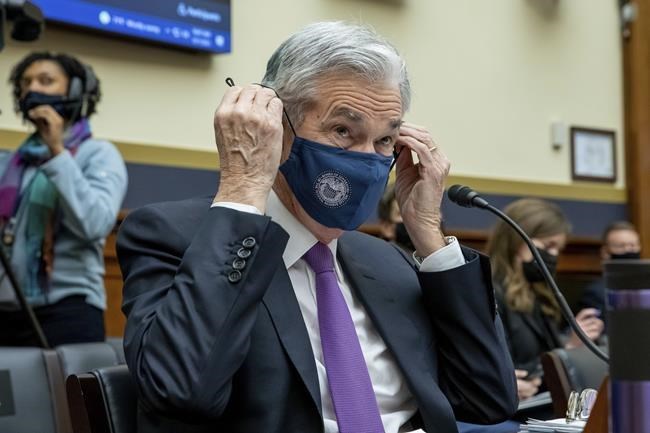WASHINGTON (AP) — In a fresh sign of his growing concerns about inflation, Chair Jerome Powell said Wednesday that the Federal Reserve can't be sure that price increases will slow in the second half of next year as many economists expect.
Powell told the House Financial Services Committee that most economists regard the current price spikes, which have sent consumer inflation to a three-decade high, as largely a response to the pandemic's persistent disruptions to supply and demand. As Americans have spent more time at home, they have ramped up spending on furniture, appliances, laptop computers. Soaring demand for such goods, combined with parts shortages, have resulted in supply chain snarls and higher prices.
In the past, Powell has frequently expressed his belief that these supply-and-demand imbalances should fade as the pandemic eases, which would reduce inflation. But on Wednesday, he said that while such an outcome is “likely," it is only a forecast.
“The point is, we can't act as if we're sure of that," he said. “We’re not at all sure of that. Inflation has been more persistent and higher than we’ve expected.”
Powell's latest remarks came a day after he signaled a sharp turn toward tightening credit more quickly than the Fed has previously indicated. The Fed chair said Tuesday that it would be “appropriate” for the central bank to consider accelerating the reduction of its bond purchases at its next meeting in mid-December. That step would pave the way to the Fed hiking its benchmark interest rate as early as next spring.
Stock prices tumbled after Powell's comments. Low interest rates have been a key driver of the stock market to record highs during the pandemic. Shares recovered most of those losses in mid-day trading Wednesday.
Powell also downplayed sharp wage gains this year as something that could boost inflation further, suggesting that he doesn't yet see a wage-price spiral developing. In the 1970s, as prices rose steadily, workers were able to demand higher pay to keep up with greater costs. Yet businesses then raised prices further to cover the higher wages, extending the worst run of inflation since World War II.
“We like to see wages move up,” Powell said. “At this point, we don’t see them moving up at a troubling rate that would that would tend to spark higher inflation, but that’s something we’re watching very carefully.”
On Tuesday, Powell, who was nominated last week to a second four-year term by President Joe Biden, said he was ready to “retire” the use of the word “transitory” to describe inflation. Instead, he said the “risk of higher inflation has increased.”
Powell, in his remarks Tuesday, also elevated inflation-fighting to a more urgent priority than supporting job growth by noting that higher prices themselves threaten the economic recovery. A long period of growth, he said, is needed to regain the “great labor market” that existed before the pandemic.
Christopher Rugaber, The Associated Press



